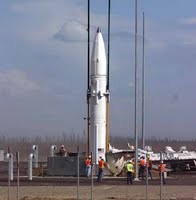Critics of the New START treaty charge that, if ratified, it would constrain U.S. missile defense plans. Whether or not the treaty's non-binding preamble supports their argument, the broader question regarding the future of missile defense is an important one. Missile defenses bolster deterrence and strengthen the security of U.S. allies, giving them a significant role to play in a fluid and dynamic contemporary security environment.
But regardless of the New START treaty, the Obama administration will have to limit U.S. missile defense plans if it wishes to remain credibly committed to future arms reduction agreements with Russia, as well as to widespread nuclear reductions and the possibility of global zero. This is in part because any expansion of missile defense in Europe is almost certain to be a spoiler in further nuclear arms reduction negotiations with Russia, themselves a precursor to wider cuts. Meanwhile, if the expansion of U.S. missile defenses in East Asia is perceived as a threat by China, it could undermine the region's entire nonproliferation structure. Finally, current U.S. missile defense plans are also likely to be naturally limited by both technological and budgetary constraints.
Although much of the zero-sum Cold War thinking about missile defense has become anachronistic, U.S. BMD plans were still a significant stumbling block in the New START negotiation process. For a variety of political, ideological and tactical reasons, Russia remains staunchly opposed to U.S. missile defense plans, particularly in Europe, and any further deployments seem likely to become an even bigger obstacle to future nuclear arms reduction agreements between the two countries. The fact that numerous efforts toward establishing cooperation on missile defense with Russia have so far been fruitless, and that the administration's Phased Adaptive Approach includes the possible deployment of hundreds of interceptor to Europe, suggests that the problem is likely to persist.

